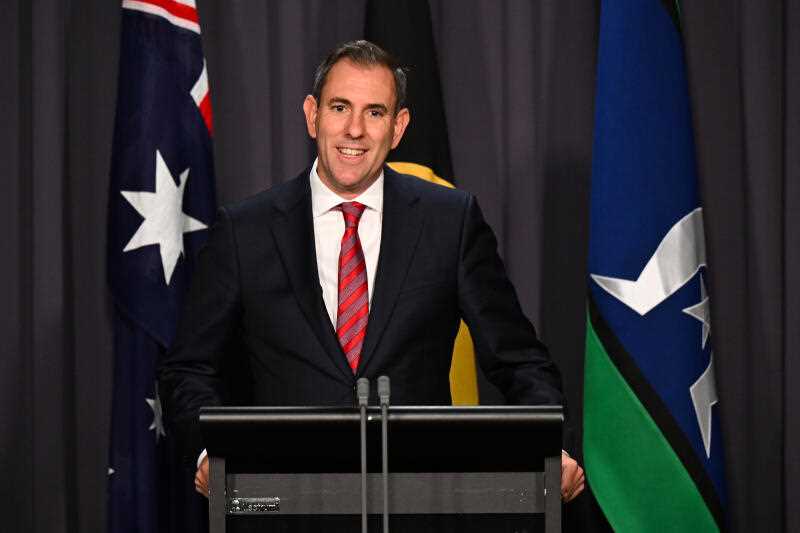By Poppy Johnston
The federal budget will be delivered by Treasurer Jim Chalmers on May 14 at a time when the economy is slowing and inflation is moderating but still too high.
What is known about the Federal Budget.
The third federal budget under the Albanese government is due to be handed down on May 14 and several spending and policy announcements have already been made.
The Big Picture
- A second surplus is still the goal in 2023/24
- The mid-year budget review had forecast a deficit of $1.1 billion for the 2023/24 fiscal year, narrowing from the $13.9 billion forecast in last year’s budget
- Revenue upgrades of about $25 billion are expected by Treasury over the five-year forecasting period. This is a smaller windfall than in the past two budgets but about 95 per cent of these tax upgrades will be banked
- About $1 billion in savings on consultants and contractors has been found
- The reworked stage three tax cuts will be the main source of cost of living relief but other targeted measures are expected
- Above-target but moderating inflation remains the primary economic challenge for the budget but the slowing domestic economy is also a priority
- Latest economic data points to ongoing tightness in the labour market and persistent price pressures
- A troubled Chinese property sector and geopolitical tensions in the Middle East and Europe are among the global challenges weighing on the budget
- Treasury has downgraded its forecasts for key economies, including China, Japan and the United Kingdom
- The government has again been under pressure to lift income support payments
Budget Measures
- $3.25 billion for Victoria’s North East Link toll road
- $1.9 billion towards roads and rail projects across greater Western Sydney
- $50 million to extend the Canberra light rail network
- $33.5 million towards planning works to support the development of Westport, a future port in Kwinana, Western Australia
- $90 million package to train 20,000 bricklayers, plumbers and other tradies
- $100 million to create an Active Transport Fund to build more bicycle and walking paths
- $519.1 million for the Commonwealth’s future drought fund
- $160 million to set up a national firearms register
- $170 million to expand money laundering and terrorism financing rules
- A $925 million domestic violence response package to provide financial aid and support referrals for women looking to get out of dangerous situations
- $467 million for upgrades to the Bruce Highway in Queensland
- $249.7 million to upgrade the Australian Institute of Sport’s facilities in Canberra in preparation for the 2032 Olympic and Paralympic Games
- $13.4 million for upgrades of 21 remote airstrips
- $10 million for grants for volunteers working in their communities
- Student teachers, nurses and social workers will be paid during their compulsory work placements
- The HELP-HECS indexation rate has been capped to ensure indexation matches either the consumer price index or the wage price index
- Australian carers who receive government support payments will be provided better work flexibility
- Super is to be paid on government-funded paid parental leave
Future made in Australian Act
The Future Made in Australia Act involves deploying public funds to give viable zero carbon industries and businesses serving the national interest a leg up so they can attract more private investment.
More details are expected to be revealed in the budget but it encompasses a number of initiatives already, including:
- Nearly $1 billion for tech company PsiQuantum to build the world’s first fault-tolerant quantum computer in Brisbane
- The $1 billion Solar SunShot program aims to bolster the nation’s solar panel manufacturing capabilities
- $400 million in loans has been announced for Australian company Alpha HPA to develop a high-purity alumina facility in Gladstone, Queensland. Financing will, in part, come from the Critical Minerals Facility
- $185 million in loans have been conditionally approved for Renascor Resources to fast-track the first stage of a purified graphite project in South Australia
- $330 million towards nine clean energy and emissions-reduction projects has been allocated at heavy industrial sites nationwide via the $1.9 billion Powering the Regions Fund
- $566 million for Geosciences Australia to deliver a map of critical mineral and rare-earth deposits
- The government says its net zero industrial policy agenda has been underpinned by the national skills agreement, the National Reconstruction Fund, the establishment of the Net Zero Economy Authority, its Future Gas Strategy and its push to rollout renewables and spur innovation
For comprehensive coverage of the latest federal budget updates, subscribe to the Australian Conveyancer to get the latest news sent directly to you.






